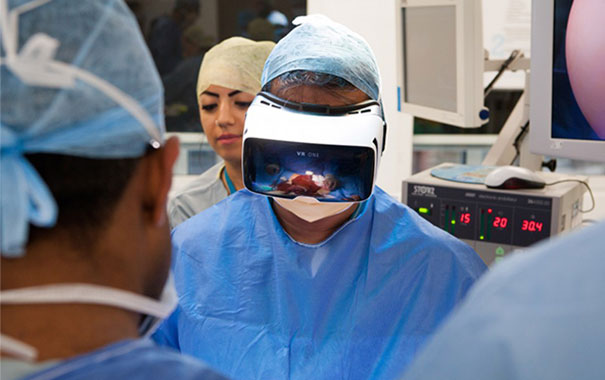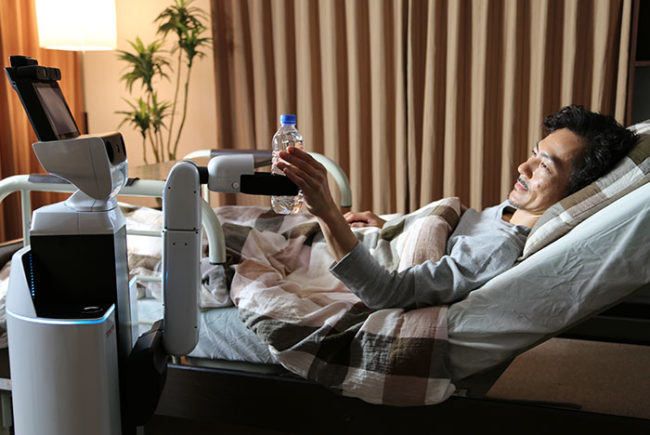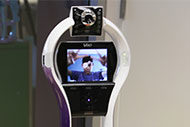 |
|
Photo courtesy of Medical Realities The Virtual Surgeon allows doctors to livestream procedures across the world. |
Surgeon uses virtual reality to live stream procedure
On April 14, Royal London Hospital live streamed an operation performed on a colon cancer patient via virtual reality technology offering 360-degree views. The procedure, led by Shafi Ahmed. M.D., was watched live by medical students from the hospital and at Queen Mary University Hospital, Gadgets 360 reports. Ahmed’s firm, Medical Realities, develops augmented and virtual reality products used for health care training. Medical Realities worked with Mativision to live stream the event.
“As a champion of new technology in medicine, I believe that virtual and augmented reality can revolutionize surgical education and training, particularly for developing countries that don’t have the resources and facilities of [National Health Service] hospitals,” Ahmed says.
People across the world watched the surgery via smartphones and Google Cardboard, a lightweight viewer that transforms virtual reality content into an immersive experience. Medical Realities says a recording of the event will be available soon.
App alerts providers as patients move from one facility to another
Vermont is breaking down barriers in care coordination across facilities with the adoption of a new app called PatientPing. Developed by a Boston company, it allows health care providers and care coordinators to monitor when and where their patients are admitted or discharged in real time. Vermont is taking the app statewide as part of a pilot program supported by a federal grant.
PatientPing Co-founder and CEO Jay Desai says the company’s software is being used by more than 12,000 providers in six states.
“It’s in the interest of the patient; there [are] real benefits for the patients when all the doctors [who] are touching them are communicating,” Desai tells the Boston Herald. “We’ve seen how magical it can be when providers work with one another in a community.”
Hospital reduces patient falls with video monitoring
Salina (Kan.) Regional Health Center has seen a 57 percent decrease in inpatient acute care falls since implementing a portable video monitoring system developed by AvaSys. The system also features two-way audio and can be installed in a patient’s room for remote monitoring. The system doesn’t record, which protects patient privacy, but allows health care staff in a remote location to audibly interview and communicate with a patient or alert staff when a safety issue arises.
KSAL NewsRadio reports that the system complements the health center’s patient sitter program that provides a personal presence in rooms with high-risk patients, such as those undergoing withdrawal from alcohol or drugs, or persons with dementia.





